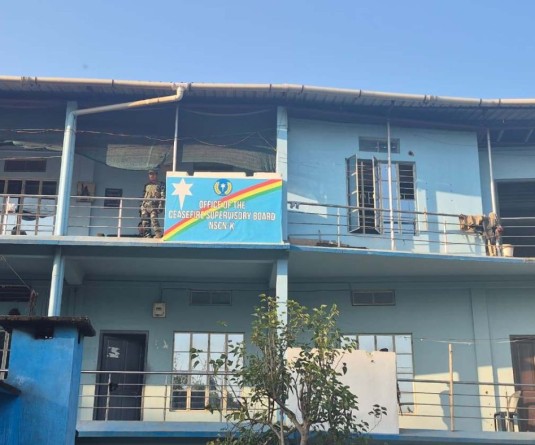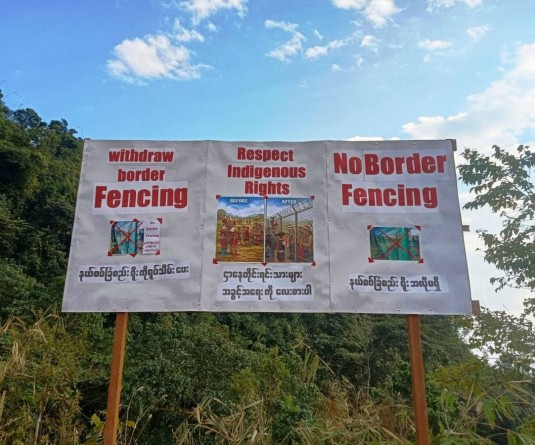Photo shared by Department of Agriculture Nagaland on September 17 regarding a Mega Oil Palm Plantation Drive 2024 (Zone-II) in Naginimora on August 8. (Image Courtesy: @AgriNgl/X)

Urges State’s Forests & Climate Change Ministry strong stance against large-scale expansion
Dimapur, September 17 (MExN): The Nagaland Community Conserved Areas Forum (NCCAF) has voiced opposition to large-scale oil palm plantations in the State, expressing fears that replacing Nagaland's unique flora and fauna “would be catastrophic for local biodiversity.”
In a letter to the Minister of Environment, Forest, and Climate Change, Nagaland, the Forum highlighted its concerns over the government's push for large-scale oil palm plantations and urged the Ministry to take a strong stance against such expansion in ecologically sensitive areas like Nagaland.
While the Ministry is not the direct implementing agency for oil palm plantations, the NCCAF expressed its strong belief that it should act as the custodian of the State’s environmental integrity.
“We believe that, with your support, we can work together to safeguard Nagaland's unique environmental heritage for future generations,” stated the Forum, which represents 29 Community Conserved Areas (CCAs) encompassing 120 villages across Nagaland.
“The preservation of Nagaland's forests is a priority that transcends financial gains, as the long-term benefits of conserving biodiversity, maintaining ecosystem services, and protecting the environment far outweigh the short-term profits of monoculture plantations,” it added.
In addition to taking a stance, the Forum urged the Ministry to promote alternative sustainable agricultural practices that balance environmental conservation with the economic well-being of local communities.
The NCCAF explained that it raises this issue as an organisation dedicated to the preservation and sustainable management of Nagaland's forests and biodiversity, due to the significant environmental and social risks associated with the initiative.
Since its establishment on 19 November 2014, the Forum has grown to 29 CCAs covering 120 villages across Nagaland.
The Forum pointed out that 85% of the CCAs have been self-initiated by the communities without any government intervention, while 15% have received support through various governmental initiatives.
“The communities' commitment to conservation is driven by their understanding of the intrinsic value of forests, both for biodiversity and for the sustainable livelihoods they provide,” added NCCAF Chairman, Heirang Lungalang, and Secretary, Seve R Vadeo, in the letter to the State’s Forest Ministry.
The introduction of large-scale oil palm plantations in Nagaland could severely disrupt the delicate balance between conservation and community development, it noted.
While the short-term financial gains from oil palm cultivation may seem promising, the long-term environmental costs are far more damaging, it said.
Citing research and experience from other regions, it expressed concern that oil palm plantations often lead to large-scale deforestation, destruction of critical habitats, loss of biodiversity, soil degradation, and water contamination.
The monoculture nature of oil palm plantations also compromises the resilience of ecosystems and weakens forests’ ability to provide essential services, such as carbon sequestration and flood regulation, the NCCAF stated.
In Nagaland, where forests are rich in unique flora and fauna, the consequences of replacing these ecosystems with oil palm monocultures would be catastrophic for local biodiversity, it cautioned, adding that the long-term impacts of such plantations on soil health, water resources, and ecological stability cannot be understated.
Thus, the NCCAF urged the Minister of Environment, Forest, and Climate Change, Nagaland, to take a strong stance against large-scale oil palm plantations in the State.






